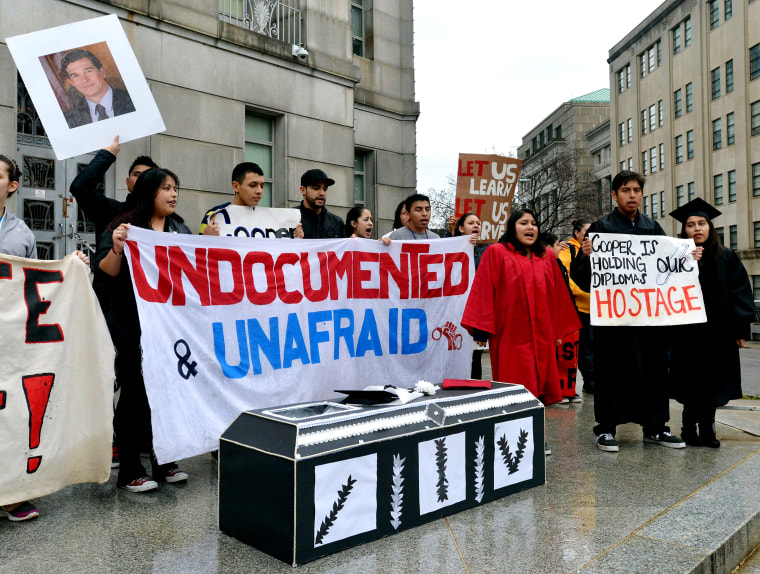The quarter-million undocumented college students in the U.S. navigate a stressful educational landscape due to current immigration laws, uneven state and university policies, and few campus resources, according to the first national survey of its kind.
"In The Shadows of the Ivory Tower: Undocumented Undergraduates and the Liminal State of Immigration Reform," urges policy makers and institutions of higher education to streamline and improve information and services for these students, who currently account for only 2% of the students in the nation's colleges but whose numbers are expected to grow. The report was a collaboration of the Institute for Immigration, Globalization, and Education at UCLA and the UndocuScholars Project.
"This is homegrown human capital," said Marcelo Suárez-Orozco, one of the report's co-authors and Dean of the Graduate School of Education and Information Systems at UCLA. "These are kids who have gone through our public schools, worshiped in our churches and temples and gone to Little League. They are swinging very hard against this undertow of confused and ambiguous policy," said Suárez-Orozco.
RELATED: The state of immigration reform in America
The report, which examined over 900 students from 55 countries across colleges in 34 states, found a group of students that is highly motivated and determined to participate in the American college experience but is constantly challenged by stress and worries over family members' deportations, financial difficulties and feelings of isolation regarding the campus experience.
Deferred action from deportation (DACA) has had a positive impact on undocumented college students; almost 66% of those surveyed had applied and received DACA status. The valid ID and work permit has enabled students to get better part-time work, more internship opportunities, easier transportation to school through driver's licenses and better housing opportunities.
But the main barriers for many undocumented students -- even with DACA -- involve the variations among states and institutions regarding in-state tuition, enrollment and financial assistance. Only 19 states have in-state tuition equity for undocumented students, and nine states have specifically restricted access to in-state tuition for undocumented students. While federal loans are unavailable for undocumented students, there are variations within states and institutions regarding financial aid.
"The federal government should provide clear guidelines for ways the higher education community could better serve DACA students regarding work authorization, internships and access to scholarships," states the report.
Inside the nation's colleges and universities, many undocumented students report not having a "safe zone" or a resource center as well as administration officials whom they could talk to. The report recommends colleges and universities provide more information, support, financing and counseling.
"These kids are American in every sense except they don't have papers, said Suarez-Orozco. They feel invisible, overwhelmed and stressed. It's an alarming picture."
Among the report's findings:
--Three quarters of the students were constantly worried about family members' possible deportations, even though 64% had at least one family member who was a U.S. citizen.
--Almost 37% of the young women and 29% of men reported elevated anxiety levels, in contrast to 9% and 4% of normal population.
--Most students have been in the U.S. almost all of their lives, on average about 15 years or more.
--Over seven-in-10 were working while in college.
--Nine-in-10 students said they would become American citizens if they could.
--Almost one-third of the students were majoring in STEM (science, technology, engineering and math) fields and almost 10% in public service fields such as education, nursing and social work.
"What we're doing now is recruiting scientists and engineers overseas," said Suarez-Orozco. ""These kids are here, they're not going anywhere ... These kids are ready, they want to serve."
This article originally appeared on NBCNews.com.
